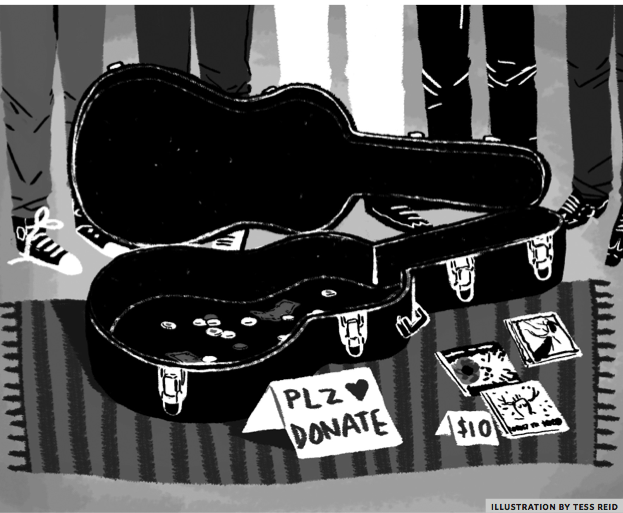“You will sleep snug and sound in Tim’s spare bedrooms (if you need to). Tim makes an incredible homemade pizza and will keep ‘em coming until you say stop,” they wrote on their Indiegogo campaign wall. Even better, fans who gave $5,000 got the chance to be heard on the album, either singing a verse or playing a guitar solo.
Volition, the newest album released independently on October 29 by the progressive metal act from Whitby, Ontario, is the product of an outrageously successful crowdfunding campaign. When Protest decided they had “completed all their obligations to record labels,” which often rob artists approximately 60 per cent of record sales, they launched an Indiegogo campaign asking their fans for $125,000—their fans responded with an appreciative $341,000. no money?” problem.
But their crowdfunding success wasn’t felt by other bands, who were lucky to raise a fraction of what Protest the Hero raised. While this new business model adds a whole new dimension of community and fosters a direct relationship between the artist and the fan, it comes with serious limitations.
The biggest downside is that fans are only going to pay for what they want to hear. If a band is going to campaign for money from their fans, they have to convince their fans with the promise that they’re going to hear the same monster, only slightly repurposed.
This was not a problem for Protest the Hero, a band that capitalizes on their tight relationship with their fans—constantly taking the time to answer their questions, doing one-on-one guitar lessons over Skype, and hanging out with them after shows—but some bands choose to deliver to themselves before their fans, and that’s completely legitimate.Take, for instance, the band Opeth, a progressive death metal act from Sweden.
When they released Heritage in 2010, their fans went ballistic because the music wasn’t heavy like all of their previous work. Frontman Mikael Akerfeldt was quick to point out that fans were angry because the band didn’t produce something they wanted to hear and were afraid of change. If Heritage was produced on their fans’ dime, their fans would have taken it as an insult and boycotted them. The other downside to this model apart from the creative limitations is the culture of worship it has created in some cases.
When Allegaeon of Colorado asked for $7,000 after their tour bus broke down, the campaign seemed in earnest until their rewards were revealed: $500 for a kit full of vocalist Ezra Haynes’ signed tighty whiteys and other such items, and $10,000 for a high five from Haynes (which—surprise, surprise—no one bought).
Protest the Hero committed the same wrong to an extent, offering postcards for a year as if fans should be happy to get their hands on anything Walker ever touched with his holy fingers. However, the prog metal band’s success isn’t random and uncalled for; they worked hard.
“I’m still paying off the $5,000 bank loan,” he says. “But my goal was to do whatever I could to get them to keep making music.”
While the crowdfunding business model is definitely a departure from a rusty old model, it’s not perfect, and the limitations will become tragically apparent. But one thing is for sure: it favours artists who make music to please their fans before anyone else.
The choice becomes binary: a livelihood of fame and inoffensive music, or a penniless adventure into the soul of an artist.
Pick one.
Leslie Armstrong
Senior Staff



